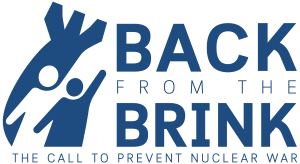VIRTUAL POLICY BRIEFING • INTERACTIVE WORKSHOPS • MARCH 4, 2021 • 11 AM EST
ENDING NUCLEAR WEAPONS
BEFORE THEY END US
Opportunities Under the Biden Administration to Take Action
THANK YOU to everyone who joined us and participated in this event! Here are recordings, event presentations, and learning resources. In the meantime please contact us at info@preventnuclearwar.org for any questions or further information.
Please join us on March 4, 2021 for a virtual policy briefing and workshop series to call on the Biden administration to prioritize the complete elimination of nuclear weapons. The event is convened by Back from the Brink (BftB) and the International Campaign to Abolish Nuclear Weapons (ICAN) with support from many partner organizations. The virtual event will feature an expert panel discussion and Q&A, followed by a series of workshops to help advocates generate the public and political will needed for a fundamental change in U.S. nuclear weapons policy.
PROGRAM OVERVIEW
11:00 am -12:35 pm EST Panel Discussion and Q&A
12:45 pm -1:30 pm EST Workshop Sessions #1
1:45 pm – 2:30 pm EST Workshop Sessions #2
FULL PROGRAM SCHEDULE
11:00 am-12:35 pm EST – Virtual Policy Briefing (Panel Discussion and Q&A)
Introduction and Overview – Daniel (Danny) Hall
Danny is the Director of Public Affairs for Soka Gakkai International-USA (SGI-USA) and is based in Washington, DC. His advocacy work centers on nuclear disarmament issues.
Growing Geopolitical Dangers and Emerging Risks, Part 1 – Zia Mian
Zia Mian is a physicist and co-director of Princeton University’s Program on Science and Global Security, part of the School of Public and International Affairs. He also directs the Program’s Project on Peace and Security in South Asia.
Growing Geopolitical Dangers and Emerging Risks, Part 2 – Michael T. Klare
Michael T. Klare is the Professor Emeritus of Peace and World Security Studies at Hampshire College. He now serves as a Senior Visiting Fellow at the Arms Control Association in Washington, D.C.
The Treaty on the Prohibition of Nuclear Weapons is the Global Mechanism for Achieving a Nuclear Weapon Free World – Beatrice Fihn
Beatrice Fihn is the Executive Director of the International Campaign to Abolish Nuclear Weapons (ICAN), the 2017 Nobel Peace Prize-winning campaign coalition that works to prohibit and eliminate nuclear weapons.
The Back from the Brink Campaign: A U.S. Roadmap for Nuclear Abolition – Denise Duffield
Denise Duffield is the Associate Director of Physicians for Social Responsibility-Los Angeles (PSR-LA.) She directs PSR-LA’s nuclear threats program, which advocates for health protective policies related to nuclear weapons and nuclear energy.
Opportunities for the Biden Administration to Address this Crisis – Thomas Countryman
Thomas Countryman is the Chairman of the Board of the Arms Control Association and former U.S. acting Undersecretary of State for Arms Control and International Security.
12:45 pm-1:30 pm EST – INTERACTIVE WORKSHOPS #1 – SKILL BUILDING
Building a Diverse and Inclusive Movement
Learn how to build bridges and authentic relationships with other social and environmental justice groups. Featuring:
 Lilly Adams is a passionate advocate working to amplify issues of nuclear justice and support communities harmed by the US nuclear weapons program. She is an Outreach Consultant for the Union of Concerned Scientists Global Security Program and founder of the Nuclear Voices project. Adams graduated from UC Berkeley with a degree in Society and Environment and is a 2019 alumna of IGCC’s Public Policy and Nuclear Threats Boot Camp. She previously ran the anti-nuclear weapons program at Washington Physicians for Social Responsibility.
Lilly Adams is a passionate advocate working to amplify issues of nuclear justice and support communities harmed by the US nuclear weapons program. She is an Outreach Consultant for the Union of Concerned Scientists Global Security Program and founder of the Nuclear Voices project. Adams graduated from UC Berkeley with a degree in Society and Environment and is a 2019 alumna of IGCC’s Public Policy and Nuclear Threats Boot Camp. She previously ran the anti-nuclear weapons program at Washington Physicians for Social Responsibility.
Working with Members of Congress
Featuring:
 Michelle Fujii Michelle is the program assistant for nuclear disarmament and Pentagon spending with Friends Committee on National Legislation. She works with grassroots activists, coalition partners, and members of Congress to advocate for cuts in Pentagon spending and make nuclear disarmament a legislative priority. She also maintains the Nuclear Calendar, which FCNL has published for more than a decade. Previously, Michelle worked as a litigation paralegal at a law firm focused on workplace fairness and employee rights. She graduated from Antioch College, where she designed her B.A. titled interdisciplinary studies in ecology, culture, and politics with language focuses in Japanese and Spanish. While pursuing her undergraduate degree, she also interned at the Research Center for Nuclear Weapons Abolition at Nagasaki University and spent six months in Buenos Aires, Argentina researching municipal and non-governmental efforts to increase public green spaces and combat climate change. Michelle is originally from Kobe, Japan.
Michelle Fujii Michelle is the program assistant for nuclear disarmament and Pentagon spending with Friends Committee on National Legislation. She works with grassroots activists, coalition partners, and members of Congress to advocate for cuts in Pentagon spending and make nuclear disarmament a legislative priority. She also maintains the Nuclear Calendar, which FCNL has published for more than a decade. Previously, Michelle worked as a litigation paralegal at a law firm focused on workplace fairness and employee rights. She graduated from Antioch College, where she designed her B.A. titled interdisciplinary studies in ecology, culture, and politics with language focuses in Japanese and Spanish. While pursuing her undergraduate degree, she also interned at the Research Center for Nuclear Weapons Abolition at Nagasaki University and spent six months in Buenos Aires, Argentina researching municipal and non-governmental efforts to increase public green spaces and combat climate change. Michelle is originally from Kobe, Japan.
 Allen Hester represents Physicians for Social Responsibility as the Grassroots and Policy Coordinator for the Nuclear Weapons Abolition program. He serves as one of the principal liaisons between PSR’s national office and PSR chapters engaged in nuclear weapons-related activities and with other groups working on nuclear disarmament—particularly on shared federal priorities. Allen is particularly interested in how nuclear weapons abolition intersects with wider movements for social justice, environmental justice, and efforts to reimagine a more peaceful US foreign policy. He has a BA in conflict analysis and resolution from the Jimmy and Rosalynn Carter School for Peace and Conflict Resolution at George Mason University.
Allen Hester represents Physicians for Social Responsibility as the Grassroots and Policy Coordinator for the Nuclear Weapons Abolition program. He serves as one of the principal liaisons between PSR’s national office and PSR chapters engaged in nuclear weapons-related activities and with other groups working on nuclear disarmament—particularly on shared federal priorities. Allen is particularly interested in how nuclear weapons abolition intersects with wider movements for social justice, environmental justice, and efforts to reimagine a more peaceful US foreign policy. He has a BA in conflict analysis and resolution from the Jimmy and Rosalynn Carter School for Peace and Conflict Resolution at George Mason University.
Growing the Nuclear Abolition Movement through Local Resolutions
Featuring:
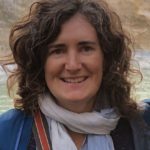 Kelly Campbell brings more than twenty years of experience in peace, justice and environmental health organizing to her role as the Executive Director of Oregon PSR. Before joining Oregon PSR in 2009, she served as the Portland Area Peace Program Director for the American Friends Service Committee and was a founding Co-director of September Eleventh Families for Peaceful Tomorrows, an organization that has been nominated three times for the Nobel Peace Prize. Kelly served on the steering committee of the national coalition United for Peace and Justice and worked as the Communications Director for Pesticide Action Network North America, and as Campaign Coordinator for Californians for Pesticide Reform. She is a recipient of the 2019 “Visionary Leaders” award from National PSR.
Kelly Campbell brings more than twenty years of experience in peace, justice and environmental health organizing to her role as the Executive Director of Oregon PSR. Before joining Oregon PSR in 2009, she served as the Portland Area Peace Program Director for the American Friends Service Committee and was a founding Co-director of September Eleventh Families for Peaceful Tomorrows, an organization that has been nominated three times for the Nobel Peace Prize. Kelly served on the steering committee of the national coalition United for Peace and Justice and worked as the Communications Director for Pesticide Action Network North America, and as Campaign Coordinator for Californians for Pesticide Reform. She is a recipient of the 2019 “Visionary Leaders” award from National PSR.

Oregon State Representative Alissa Keny-Guyer has spent decades working to eliminate poverty and disparities. Before moving to Portland in 1994, Alissa worked for Oxfam in Indonesia, earned a Masters in Public Health, worked in Hawaiian nonprofits and the Hawaii legislature, and ran an international exchange organization in California. Over the past 26 years in Oregon, she has led efforts in not-for-profits, government commissions, and the Legislature to create healthy families and communities. As State Representative for House District 46 (SE/NE Portland) from 2011-2021, Alissa chaired the House Committee on Human Services and Housing and served on Health Care, Revenue, Early Childhood & Family Support, Consumer Affairs, and Energy & Environment Committees. Now, as senior advisor to the director of the Oregon Department of Human Services and as a private citizen, Alissa continues to focus on closing racial and economic disparities, particularly for women and children, in housing, health, child care, and education.
Divestment - How to Get Your Bank to Stop Investing in Nuclear Weapons
Featuring:
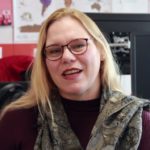 Susi Snyder is the project lead for the PAX No Nukes project, and she also coordinates the Don’t Bank on the Bomb research and campaign. She is an expert on nuclear weapons, with over two decades experience working at the intersection between nuclear weapons and human rights. In addition to the annual Don’t Bank on the Bomb reports, Susi has published numerous reports and articles. She represents PAX on the ICAN International Steering Group. Susi is a 2016 Nuclear Free Future Award Laureate. Previously, Mrs. Snyder served as the Secretary General of the Women’s International League for Peace and Freedom (WILPF) at their Geneva secretariat, and she is still President of the WILPF United Nations Office. She was named Hero of Las Vegas in 2001 for her work with indigenous populations against US nuclear weapons development and nuclear waste dumping.
Susi Snyder is the project lead for the PAX No Nukes project, and she also coordinates the Don’t Bank on the Bomb research and campaign. She is an expert on nuclear weapons, with over two decades experience working at the intersection between nuclear weapons and human rights. In addition to the annual Don’t Bank on the Bomb reports, Susi has published numerous reports and articles. She represents PAX on the ICAN International Steering Group. Susi is a 2016 Nuclear Free Future Award Laureate. Previously, Mrs. Snyder served as the Secretary General of the Women’s International League for Peace and Freedom (WILPF) at their Geneva secretariat, and she is still President of the WILPF United Nations Office. She was named Hero of Las Vegas in 2001 for her work with indigenous populations against US nuclear weapons development and nuclear waste dumping.
For Students: Cutting Your University’s Ties to Nuclear Weapons
Featuring:
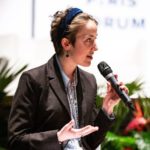 Alicia Sanders-Zakre is the policy and research coordinator at the International Campaign to Abolish Nuclear Weapons (ICAN). She is the author of over 100 articles, editorials and reports on nuclear weapons, many on the Treaty on the Prohibition of Nuclear Weapons. She coordinates university outreach following the release of ICAN’s report, Schools of Mass Destruction: American Universities in the U.S. Nuclear Weapons Complex, and recently co-authored the article “How the Treaty on the Prohibition of Nuclear Weapons Impacts the United States and Why the United States Must Embrace its Entry into Force” published in the Columbia University Journal of International Affairs.
Alicia Sanders-Zakre is the policy and research coordinator at the International Campaign to Abolish Nuclear Weapons (ICAN). She is the author of over 100 articles, editorials and reports on nuclear weapons, many on the Treaty on the Prohibition of Nuclear Weapons. She coordinates university outreach following the release of ICAN’s report, Schools of Mass Destruction: American Universities in the U.S. Nuclear Weapons Complex, and recently co-authored the article “How the Treaty on the Prohibition of Nuclear Weapons Impacts the United States and Why the United States Must Embrace its Entry into Force” published in the Columbia University Journal of International Affairs.
 Sajani Patel is an intern at Nuclear Age Peace Foundation and works closely with Christian Ciobanu to create projects involving education and awareness about nuclear disarmament. She is a junior at Fordham University studying Political Science and International Studies with a minor in Italian. She works towards furthering youth involvement in nuclear disarmament advocacy and hopes to empower young people to take a stand and use their voice in humanitarian affairs.
Sajani Patel is an intern at Nuclear Age Peace Foundation and works closely with Christian Ciobanu to create projects involving education and awareness about nuclear disarmament. She is a junior at Fordham University studying Political Science and International Studies with a minor in Italian. She works towards furthering youth involvement in nuclear disarmament advocacy and hopes to empower young people to take a stand and use their voice in humanitarian affairs.
Social Media
Interactive workshop with social media professional – how to engage the public and advocate in a digital world. Featuring:
 John Pope is a Senior Communications Associate in ReThink Media’s Peace and Security Collaborative, where he works with leading experts, organizations, and community advocates on the intersection between national security, politics, and the media. John primarily works on the issues of nuclear disarmament and nonproliferation as well as the Pentagon budget.
John Pope is a Senior Communications Associate in ReThink Media’s Peace and Security Collaborative, where he works with leading experts, organizations, and community advocates on the intersection between national security, politics, and the media. John primarily works on the issues of nuclear disarmament and nonproliferation as well as the Pentagon budget.
Before working with ReThink, John used storytelling and communication tools in a variety of government, nonprofits, and political campaigns roles. He worked as a field organizer back home in Pennsylvania for the 2018 midterms, managed the communications and fundraising for the Na’atik Language and Culture Institute while living in Mexico, and empowered local peacebuilders around the world with technology tools at the PeaceTech Lab.
Action for Abolition
Want to speak truth to power? Learn about how to plan and execute protests for nuclear abolition from two experienced activists. Felice and Ralph will walk you through different types of protests, share lessons learned from some of their past demonstrations and answer your questions to help get you started. Featuring:
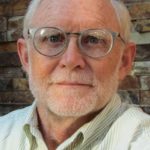 Ralph Hutchison has been Coordinator of the Oak Ridge Environmental Peace Alliance [OREPA] since 1990. OREPA works to stop nuclear weapons production at the Y-12 National Security Complex in Oak Ridge, Tennessee, the site that produced the highly enriched uranium that fueled the Little Boy bomb and today manufactures the thermonuclear core for US nuclear weapons. Hutchison has served on state and federal advisory boards dealing with health and environmental impacts from nuclear weapons production. He is on the Board of Directors of the Alliance for Nuclear Accountability. He has participated in NGO presentations about the US nuclear weapons complex at the United Nations and in briefings at the US Congress and has participated in nonviolent direct action/civil resistance actions in the US and, most recently (2019), at the Büchel Air Base in Büchel, Germany, where US nuclear weapons are deployed.
Ralph Hutchison has been Coordinator of the Oak Ridge Environmental Peace Alliance [OREPA] since 1990. OREPA works to stop nuclear weapons production at the Y-12 National Security Complex in Oak Ridge, Tennessee, the site that produced the highly enriched uranium that fueled the Little Boy bomb and today manufactures the thermonuclear core for US nuclear weapons. Hutchison has served on state and federal advisory boards dealing with health and environmental impacts from nuclear weapons production. He is on the Board of Directors of the Alliance for Nuclear Accountability. He has participated in NGO presentations about the US nuclear weapons complex at the United Nations and in briefings at the US Congress and has participated in nonviolent direct action/civil resistance actions in the US and, most recently (2019), at the Büchel Air Base in Büchel, Germany, where US nuclear weapons are deployed.
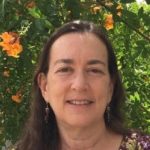 Felice Cohen-Joppa has been co-coordinator of the Nuclear Resister since 1980. She has participated in many nonviolent actions over the years, protesting uranium mining, nuclear power, nuclear testing and nuclear weapons. In 1996, she helped organize the International Conference on Democracy, Human Rights and Mordechai Vanunu in Tel Aviv, and later served as coordinator of the U.S. Campaign to free the Israeli nuclear whistleblower until his release from prison in 2004. Felice and her partner Jack, who live in Tucson, Arizona, are the recipients of the 2020 Nuclear Free Future Award in the Education Category for their “decades-long work supporting anti-nuclear resisters in prison and keeping their messages alive on the outside.”
Felice Cohen-Joppa has been co-coordinator of the Nuclear Resister since 1980. She has participated in many nonviolent actions over the years, protesting uranium mining, nuclear power, nuclear testing and nuclear weapons. In 1996, she helped organize the International Conference on Democracy, Human Rights and Mordechai Vanunu in Tel Aviv, and later served as coordinator of the U.S. Campaign to free the Israeli nuclear whistleblower until his release from prison in 2004. Felice and her partner Jack, who live in Tucson, Arizona, are the recipients of the 2020 Nuclear Free Future Award in the Education Category for their “decades-long work supporting anti-nuclear resisters in prison and keeping their messages alive on the outside.”
1:45 pm-2:30 pm EST – INTERACTIVE WORKSHOPS #2 – KEY ISSUES
Opportunities to Adopt Saner and More Effective Nuclear Weapons Policies Under the Biden Administration
Featuring:
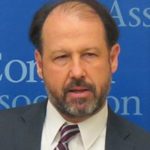 Daryl G. Kimball is the Executive Director of the Arms Control Association. From 1997 to 2001, he was the executive director of the Coalition to Reduce Nuclear Dangers, a consortium of 17 of the largest U.S. non-governmental organizations working together to strengthen national and international security by reducing the threats posed by nuclear weapons. While at the Coalition, Daryl coordinated community-wide education, research and lobbying campaigns for the Comprehensive Test Ban Treaty, further deep and verifiable reductions in nuclear weapons stockpiles, and against the deployment of an unproven and ineffective national missile defense system. From 1989-1997, Kimball worked as the Associate Director for Policy and later, the Director of Security Programs for Physicians for Social Responsibility (PSR) where he organized media, lobbying and public education campaigns against nuclear weapons production and testing, and research projects on the health and environmental impacts of the nuclear arms race. Through PSR, Daryl helped spearhead non-governmental efforts to win Congressional approval for the 1992 nuclear test moratorium legislation, to extend the test moratorium in 1993, to win U.S. support for a “zero-yield” test ban treaty, and for the U.N.’s 1996 endorsement of the CTBT.
Daryl G. Kimball is the Executive Director of the Arms Control Association. From 1997 to 2001, he was the executive director of the Coalition to Reduce Nuclear Dangers, a consortium of 17 of the largest U.S. non-governmental organizations working together to strengthen national and international security by reducing the threats posed by nuclear weapons. While at the Coalition, Daryl coordinated community-wide education, research and lobbying campaigns for the Comprehensive Test Ban Treaty, further deep and verifiable reductions in nuclear weapons stockpiles, and against the deployment of an unproven and ineffective national missile defense system. From 1989-1997, Kimball worked as the Associate Director for Policy and later, the Director of Security Programs for Physicians for Social Responsibility (PSR) where he organized media, lobbying and public education campaigns against nuclear weapons production and testing, and research projects on the health and environmental impacts of the nuclear arms race. Through PSR, Daryl helped spearhead non-governmental efforts to win Congressional approval for the 1992 nuclear test moratorium legislation, to extend the test moratorium in 1993, to win U.S. support for a “zero-yield” test ban treaty, and for the U.N.’s 1996 endorsement of the CTBT.
Nuclear Weapons are Illegal. What Does the Entry into Force of the TPNW Mean in the United States?
Featuring:
 Alicia Sanders-Zakre is the policy and research coordinator at the International Campaign to Abolish Nuclear Weapons (ICAN). She is the author of over 100 articles, editorials and reports on nuclear weapons, many on the Treaty on the Prohibition of Nuclear Weapons. She coordinates university outreach following the release of ICAN’s report, Schools of Mass Destruction: American Universities in the U.S. Nuclear Weapons Complex, and recently co-authored the article “How the Treaty on the Prohibition of Nuclear Weapons Impacts the United States and Why the United States Must Embrace its Entry into Force” published in the Columbia University Journal of International Affairs.
Alicia Sanders-Zakre is the policy and research coordinator at the International Campaign to Abolish Nuclear Weapons (ICAN). She is the author of over 100 articles, editorials and reports on nuclear weapons, many on the Treaty on the Prohibition of Nuclear Weapons. She coordinates university outreach following the release of ICAN’s report, Schools of Mass Destruction: American Universities in the U.S. Nuclear Weapons Complex, and recently co-authored the article “How the Treaty on the Prohibition of Nuclear Weapons Impacts the United States and Why the United States Must Embrace its Entry into Force” published in the Columbia University Journal of International Affairs.
 Seth Shelden is the United Nations Liaison for the International Campaign to Abolish Nuclear Weapons (ICAN), the 2017 Nobel Peace Prize-winning coalition working to prohibit and eliminate nuclear weapons. In this capacity, he assists governments in signing and ratifying the Treaty on the Prohibition of Nuclear Weapons, and he represents ICAN in promoting universalization of the treaty. He is a lawyer in New York, and Adjunct Professor at the City University of New York (CUNY) School of Law. Together with Alicia Sanders-Zakre, he recently co-authored the article “How the Treaty on the Prohibition of Nuclear Weapons Impacts the United States and Why the United States Must Embrace its Entry into Force,” published in Columbia University’s Journal of International Affairs.
Seth Shelden is the United Nations Liaison for the International Campaign to Abolish Nuclear Weapons (ICAN), the 2017 Nobel Peace Prize-winning coalition working to prohibit and eliminate nuclear weapons. In this capacity, he assists governments in signing and ratifying the Treaty on the Prohibition of Nuclear Weapons, and he represents ICAN in promoting universalization of the treaty. He is a lawyer in New York, and Adjunct Professor at the City University of New York (CUNY) School of Law. Together with Alicia Sanders-Zakre, he recently co-authored the article “How the Treaty on the Prohibition of Nuclear Weapons Impacts the United States and Why the United States Must Embrace its Entry into Force,” published in Columbia University’s Journal of International Affairs.
Nuclear Weapons Budget - Where Are There Opportunities to Cut Programs and What Can We Spend on Instead?
Featuring:
 Erica Fein is the Advocacy Director at Win Without War, engaging policymakers, the NGO community, the media, and grassroots partners to advance a progressive foreign policy and national security agenda. Her career has centered in and around Congress and foreign policy issues. Previously, she served as Director of Government Affairs and Nuclear Weapons Policy Director at Women’s Action for New Directions where she led campaigns to limit the excessive U.S. nuclear weapons arsenal. She also handled national security, foreign policy, veterans affairs, and other issues as a legislative assistant to former Congressman John D. Dingell. Erica holds an MA from the Josef Korbel School of International Studies at the University of Denver and a BA from the University of Wisconsin-Madison. When not at work, Erica may be found at Nationals Park, reading for her book club, or staying active.
Erica Fein is the Advocacy Director at Win Without War, engaging policymakers, the NGO community, the media, and grassroots partners to advance a progressive foreign policy and national security agenda. Her career has centered in and around Congress and foreign policy issues. Previously, she served as Director of Government Affairs and Nuclear Weapons Policy Director at Women’s Action for New Directions where she led campaigns to limit the excessive U.S. nuclear weapons arsenal. She also handled national security, foreign policy, veterans affairs, and other issues as a legislative assistant to former Congressman John D. Dingell. Erica holds an MA from the Josef Korbel School of International Studies at the University of Denver and a BA from the University of Wisconsin-Madison. When not at work, Erica may be found at Nationals Park, reading for her book club, or staying active.
Twin Existential Threats - Nuclear Weapons and the Climate Crisis
How climate change can lead to nuclear war and how nuclear war can lead to climate catastrophe. Featuring:
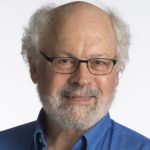 Alan Robock is a Distinguished Professor in the Department of Environmental Sciences at Rutgers University. He graduated from the University of Wisconsin, Madison, in 1970 with a B.A. in Meteorology, and from the Massachusetts Institute of Technology with an S.M. in 1974 and Ph.D. in 1977, both in Meteorology. Before graduate school, he served as a Peace Corps Volunteer in the Philippines. He is a recipient of the American Meteorological Society Jule G. Charney Medal. Robock was a Lead Author of the 2013 Working Group 1 Fifth Assessment Report of the Intergovernmental Panel on Climate Change (awarded the Nobel Peace Prize in 2007).
Alan Robock is a Distinguished Professor in the Department of Environmental Sciences at Rutgers University. He graduated from the University of Wisconsin, Madison, in 1970 with a B.A. in Meteorology, and from the Massachusetts Institute of Technology with an S.M. in 1974 and Ph.D. in 1977, both in Meteorology. Before graduate school, he served as a Peace Corps Volunteer in the Philippines. He is a recipient of the American Meteorological Society Jule G. Charney Medal. Robock was a Lead Author of the 2013 Working Group 1 Fifth Assessment Report of the Intergovernmental Panel on Climate Change (awarded the Nobel Peace Prize in 2007).
Nuclear Weapons and Racism, Colonialism, and the Nuclear Testing Impact on Indigenous Communities in the U.S.
Featuring:
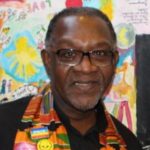 Jim Anderson is deeply engaged in intersectional organizing across issue areas. Jim is the President of Peace Action New York State and is State Vice President of Citizen Action of New York. He is a founding member and organizer of the National Black United Front which led the formation of the Third World and Progressive People’s Coalition which helped organize the June 12, 1982 Disarmament Rally in New York City at the U.N.. Jim served as an organizer & leader for the Peace Contingents of both the 2014 NYC and 2017 D.C. Climate Marches.
Jim Anderson is deeply engaged in intersectional organizing across issue areas. Jim is the President of Peace Action New York State and is State Vice President of Citizen Action of New York. He is a founding member and organizer of the National Black United Front which led the formation of the Third World and Progressive People’s Coalition which helped organize the June 12, 1982 Disarmament Rally in New York City at the U.N.. Jim served as an organizer & leader for the Peace Contingents of both the 2014 NYC and 2017 D.C. Climate Marches.
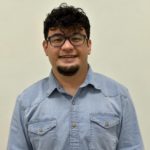 Benetick Kabua Maddison is the Project Specialist for Youth, Climate, and Nuclear Issues at Marshallese Educational Initiative, a nonprofit organization that serves the Marshallese community, raises awareness of Marshallese culture, and facilitates intercultural dialogue to foster positive social change.For more than a decade, Benetick has worked with his peers and Marshallese students and their families on projects to increase retention rates and to promote Marshallese culture and history, as well as on issues affecting his people and homeland. Benetick was the Keynote Speaker at the I2SL Annual Conference in October 2019, where he spoke about the impact of climate change in the Marshall Islands.
Benetick Kabua Maddison is the Project Specialist for Youth, Climate, and Nuclear Issues at Marshallese Educational Initiative, a nonprofit organization that serves the Marshallese community, raises awareness of Marshallese culture, and facilitates intercultural dialogue to foster positive social change.For more than a decade, Benetick has worked with his peers and Marshallese students and their families on projects to increase retention rates and to promote Marshallese culture and history, as well as on issues affecting his people and homeland. Benetick was the Keynote Speaker at the I2SL Annual Conference in October 2019, where he spoke about the impact of climate change in the Marshall Islands.
SPONSORING ORGANIZATIONS


PARTNERING ORGANIZATIONS
American Friends Service Committee • Arms Control Association • Beyond Nuclear • Center for Political Ecology • Church of the Brethren Office of Peacebuilding and Policy • Columban Center for Advocacy and Outreach • Friends Committee on National Legislation • Global Campaign for Peace Education • Ground Zero Center for Nonviolent Action • International Health & Epidemiology Research Center • International Physicians for the Prevention of Nuclear War • Lawyers Committee on Nuclear Policy • Maryknoll Office of Global Concerns • National Council of Churches of Christ USA • New Hampshire Peace Action • New Jersey Peace Action • Nuclear Age Peace Foundation • Nuclear Watch New Mexico • Outrider Foundation • Pathways to Peace • Pax Christi-USA • Peace Action • Peace Action New York State • Peace Resource Center at Wilmington College • PEAC Institute • Physicians for Social Responsibility • Physicians for Social Responsibility-Los Angeles • Presbyterian Church (USA) • Sierra Club • Sojourner Truth School for Social Change Leadership • Soka Gakkai International-USA • St. Joan of Arc Church Peacemakers • Tewa Women United • Tri-Valley CAREs • Union of Concerned Scientists • United Church of Christ, Justice and Witness Ministries • United Methodist General Board of Church and Society • Utah Campaign to Abolish Nuclear Weapons • Vigilant Love • Win Without War • Women Against Military Madness

